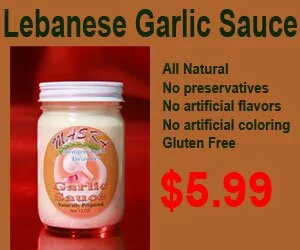“Natural wine” — the latest trend
What is “natural wine”?
Well, if you Google the term (with quote marks) you get 307,000 results, and I’m not about to go through them all the find out. Instead, I’ll quote from Wikipedia, which is the first result: “Natural wine is wine made with minimal chemical and technological intervention in growing grapes and making them into wine.”
That sounds pretty good. Who wants wine that’s been degraded by chemicals and technological interventions?
Like barrels. Like sulfur. Like fining agents. Like commercial yeast. Like acidity. If you’re in France, like sugar. Yes, sugar is a chemical, last time I checked. Here’s the formula for sucrose: C12H22O11
That’s a lot of yucky carbon, hydrogen and oxygen atoms. I don’t want no feelthy atoms messing up my wine!
I started thinking along these lines when I read this article in our local free paper, the Bay Guardian, about “the high priestess of natural wines,” Alice Feiring. Now, I don’t know Alice and I haven’t read her new book (Naked Wine) and so this is not a commentary on her but rather just my (somewhat disorganized) thoughts on reading this particular article, and putting it together with other stuff I’ve been hearing and reading about concerning natural wine.
In the wine biz, if you stick around long enough you’ll come to recognize when a new trend pops out of nowhere. Natural wine is a new trend–or, let me rephrase that. Natural wine–the actual beverage–is not a new trend, but talking up natural wine is the new trend. Actually, that’s what makes a trend: suddenly people are talking about it. Organic was a trend a while back (“natural wine” has little to do with organic wine). Then came biodynamic. There are equivalents in food. Locovore is a big trend, and possibly an important one, but there also have been silly food trends, like “beds” of this or that, and foam, and elaborate constructions that look more like museum pieces than something you’re supposed to eat. Possibly, “meat” cocktails are a new trend. Hot young mixologists as our new rock stars may be a trend, although it’s not necessarily one I oppose. So you see that trends can span the gamut from the vital to the vacuous; the one thing they have going for them is buzz, which is why God invented publicists.
But I digress. The topic is natural wine. Let us gently dispose of the concept that no chemicals or technologies should ever be allowed to tarnish a wine. Under that definition, the only natural wines are those which are created when birds puncture grapeskins on the vine, and then the juice inside ferments with wild yeasts to produce wine that those same birds sometimes get drunk on. That’s natural wine. Any wine that comes in a bottle is not “natural” because a human made it and did what he or she had to to make it taste good. And you and I won’t necessarily know what that entailed, because the winemaker isn’t necessarily going to tell us. If the winemaker says the wine is “natural” you’re free to believe whatever you want. Sometimes what winemakers say is true. Sometimes it isn’t. It’s not that they’re liars. They just human beings, and occasionally a small sin of omission just can’t be resisted.
Besides, some wine that’s made “naturally” isn’t very good. There are a few so-called “natural” wineries listed in the article. I’ve reviewed some of them; they vary from undrinkable to pretty good. But here’s the context you need to understand about this natural wine trendy thing: the reason this article is in the Bay Guardian is because anything with the word “natural” stuck to it is going to be popular with the greenie Whole Foods crowd (just as anything with the word “chemicals” attached to it will arouse their ire). If there’s a trend happening anywhere on the political/environmental left, it’s going to find its way into the Bay Guardian, whose editors like such things, and are happy to pay reporters to write about glowingly.









